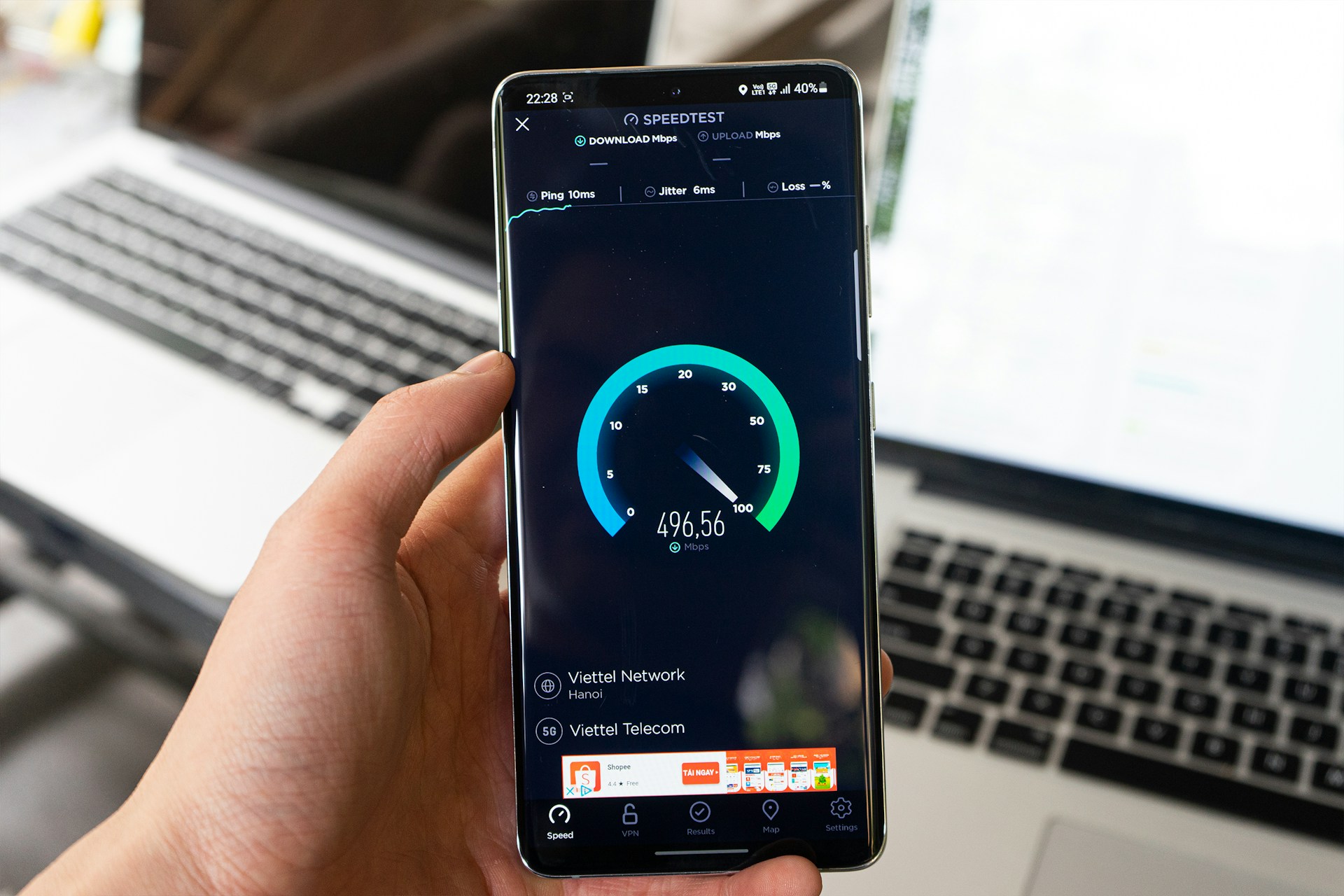As we venture further into the digital age, the way we handle everyday tasks continues to evolve. One of the areas where technology, especially smartphones, has made a significant impact is waste management in urban environments. Smart cities around the globe are leveraging technology to create systems that are more efficient and environmentally friendly. This article explores how you can use your smartphone to contribute to efficient waste management in these progressively smarter cities, making our urban spaces cleaner and more sustainable.
Embracing Smart Waste Management Apps
In smart cities, waste management has transcended traditional methods. The introduction of specialized apps designed to streamline waste disposal and recycling has revolutionized how we manage our waste. These apps often provide essential features like waste pickup schedules, recycling guidelines, and real-time alerts for service disruptions.
Also to see : What Are the Techniques to Integrate Smartphones with Wearable Fitness Tech?
Using a smartphone app, you can easily keep track of your waste management responsibilities. No longer will you miss garbage collection days or face confusion about what items can be recycled. These apps offer tailored notifications, so you always stay informed. The convenience brought by these apps ensures that waste management is no longer an overlooked chore but an integrated part of daily life.
Several municipalities have adopted these apps, and many offer incentives for their use. Some apps even track your recycling habits and offer rewards or discounts for consistent and correct waste disposal. This gamification ensures higher participation rates and a cleaner city.
Have you seen this : How to Utilize Your Smartphone for High-Precision Cooking?
Additionally, these apps can provide educational resources. Many people are unaware of the intricate details of recycling processes. The apps can guide you on how to separate waste correctly, what different symbols on packaging mean, and how to reduce your overall waste production.
By embracing these technological advancements, we foster a more collaborative and efficient waste management system. This approach not only benefits individual households but also contributes to the broader goal of creating sustainable and clean urban environments.
Leveraging GPS and Real-Time Tracking
In the realm of smart cities, real-time data is king. Smartphones equipped with GPS and tracking capabilities can play a crucial role in enhancing waste management systems. Municipalities can utilize these features to improve the efficiency of waste collection routes and reduce the environmental footprint of waste management vehicles.
For instance, drivers of waste collection trucks can use navigation apps to avoid traffic congestions and take the most efficient routes. This reduces fuel consumption and ensures timely collection of waste. Moreover, real-time tracking allows citizens to know the exact time when their waste will be collected, enabling them to plan their waste disposal accordingly.
Furthermore, smartphones can provide valuable data about waste generation patterns. By analyzing this data, municipalities can optimize waste collection schedules and allocate resources more effectively. Areas with higher waste production might need more frequent collections, while others might require fewer services. This dynamic approach leads to a more balanced and effective waste management system.
Additionally, some cities have implemented smart bins equipped with sensors that notify waste management services when they are full. These bins can send alerts to collection trucks via smartphones, ensuring timely emptying and preventing overflow. This technology reduces the occurrence of littered streets and contributes to a cleaner urban environment.
By leveraging GPS and real-time tracking, we can significantly enhance the efficiency and effectiveness of waste management systems. This not only benefits the environment but also improves the quality of life in urban areas.
Citizen Engagement and Community Initiatives
Smart cities thrive on the active participation of their citizens. Smartphones provide a powerful tool for engaging communities and promoting waste management initiatives. Through various platforms and social media channels, citizens can stay informed about local waste management programs and participate in community-driven environmental efforts.
One of the key advantages of smartphones is their ability to facilitate communication. Municipalities can use mobile apps and social media to disseminate information about new waste management policies, recycling events, and cleanup drives. This keeps citizens well-informed and encourages them to contribute to these initiatives.
Moreover, smartphones enable citizens to report waste-related issues in real-time. If you notice an overflowing bin or illegal dumping, you can quickly take a photo and report it through a dedicated app. This immediate feedback loop allows authorities to address issues promptly, ensuring a cleaner and safer urban environment.
Community engagement is further enhanced through mobile platforms that promote recycling challenges and competitions. These initiatives encourage friendly competition among neighborhoods, schools, or workplaces, fostering a sense of collective responsibility. The use of smartphones makes participation easy and convenient, leading to higher engagement levels.
Furthermore, smartphones can be used to educate the younger generation about the importance of waste management. Interactive apps and games can teach children about recycling and waste reduction in a fun and engaging manner. By instilling these values at a young age, we are building a generation that is more conscious of its environmental impact.
By leveraging smartphones for citizen engagement and community initiatives, we can create a culture of active participation in waste management. This collective effort is essential for the success of any smart city’s waste management strategy.
The Role of IoT and Smart Sensors
The Internet of Things (IoT) is a cornerstone of smart city infrastructure, and it has a significant role to play in waste management. Smart sensors embedded in waste bins and collection vehicles can gather real-time data and communicate with smartphones to optimize the entire waste management process.
One of the primary advantages of IoT in waste management is the ability to monitor waste levels in real-time. Sensors can detect when a bin is nearing its capacity and send alerts to waste collection services. This ensures timely emptying of bins, preventing overflow and reducing unnecessary collection trips.
Furthermore, IoT-enabled bins can provide data on the type of waste being disposed of. This information helps municipalities understand waste composition and tailor recycling programs accordingly. By analyzing this data, cities can identify trends and implement targeted waste reduction strategies.
Smart sensors can also enhance the efficiency of waste collection vehicles. These sensors can monitor the fill levels of bins along their route, allowing drivers to optimize their collection schedule. This reduces fuel consumption, minimizes operational costs, and decreases the environmental impact of waste management.
In addition to waste bins and vehicles, IoT can also be integrated into recycling facilities. Sensors can track the flow of materials through the recycling process, ensuring optimal sorting and processing. This improves the overall efficiency of recycling operations and increases the amount of waste that can be successfully recycled.
By embracing IoT and smart sensors, smart cities can create a more intelligent and responsive waste management system. This technology-driven approach not only enhances efficiency but also contributes to the overall sustainability of urban environments.
Future Trends in Smart Waste Management
As technology continues to advance, the future of waste management in smart cities holds exciting possibilities. Emerging trends and innovations promise to further revolutionize how we handle waste and create more sustainable urban environments.
One of the future trends in smart waste management is the integration of artificial intelligence (AI). AI algorithms can analyze vast amounts of data collected from sensors, apps, and other sources to predict waste generation patterns and optimize collection schedules. This predictive capability ensures that resources are allocated efficiently and waste management operations run smoothly.
Another promising trend is the use of blockchain technology. Blockchain can provide transparent and tamper-proof records of waste management activities. This enhances accountability and ensures that waste disposal and recycling processes are carried out in compliance with regulations. Blockchain can also facilitate the tracking of waste materials from generation to disposal, reducing the risk of illegal dumping.
Furthermore, advancements in recycling technology are set to revolutionize waste management. Innovations such as robotic sorting systems and automated recycling plants can increase the efficiency and accuracy of recycling processes. These technologies can handle a wider range of materials and ensure that more waste is diverted from landfills.
Smart waste management is also likely to see increased collaboration between cities and private companies. Public-private partnerships can leverage the expertise and resources of both sectors to create more effective waste management solutions. Companies specializing in waste management technology can provide cutting-edge solutions that enhance the overall efficiency of urban waste systems.
Additionally, the concept of circular economy is gaining traction in smart cities. This approach aims to minimize waste by keeping materials in use for as long as possible. Smartphones can play a role in promoting circular economy practices by providing information on repair and reuse options for products, as well as connecting users with local recycling and refurbishment centers.
The future of waste management in smart cities is undoubtedly bright. By embracing emerging technologies and innovative practices, we can create more sustainable and efficient waste management systems that benefit both the environment and urban communities.
In today’s rapidly evolving urban landscapes, smartphones have become powerful tools for efficient waste management in smart cities. By embracing specialized apps, leveraging GPS and real-time tracking, engaging citizens, integrating IoT and smart sensors, and exploring future trends, we can create cleaner, more sustainable urban environments. The active involvement of citizens, combined with cutting-edge technology, is key to achieving these goals. As we continue to innovate and collaborate, the future of waste management in smart cities holds great promise, ensuring a greener and more efficient urban future for all.











